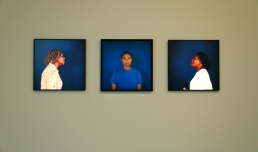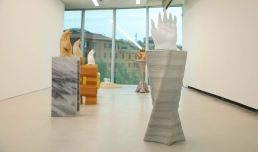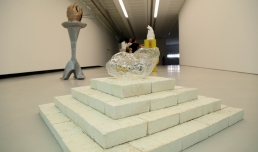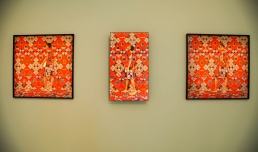MAXXI BVLGARI PRIZE 2022
galleria 5
curated by Giulia Ferracci
Monday closed
Tuesday to Sunday 11 am – 7 pm
Tuesday, 1 July 7 pm > 9 pm
Wednesday, 9 July 7 pm > 9 pm
Wednesday, 16 July 7 pm > 9 pm
book online
last entrance 8 pm
– for young people aged between 18 and 25 (not yet turned 25);
– for groups of 15 people or more;
– La Galleria Nazionale, Museo Ebraico di Roma ticket holders;
– upon presentation of ID card or badge: Accademia Costume & Moda, Accademia Fotografica, Biblioteche di Roma, Centro Sperimentale di Cinematografia, Enel (for badge holder and accompanying person), FAI Fondo Ambiente Italiano, Feltrinelli, Gruppo FS, IN/ARCH Istituto Nazionale di Architettura, Sapienza Università di Roma, LAZIOcrea, Palazzo delle Esposizioni, Amici di Palazzo Strozzi, Accademia Nazionale di Santa Cecilia, Scuola Internazionale di Comics, Teatro Olimpico, Teatro dell’Opera di Roma, Teatro di Roma, Università degli Studi di Roma Tor Vergata, Youthcard;
valid for one year from the date of purchase
– minors under 18 years of age;
– myMAXXI cardholders;
– on your birthday presenting an identity document;
– upon presentation of EU Disability Card holders and or accompanying letter from hosting association/institution for: people with disabilities and accompanying person, people on the autistic spectrum and accompanying person, deaf people, people with cognitive disabilities and complex communication needs and their caregivers, people with serious illnesses and their caregivers, guests of first aid and anti-violence centres and accompanying operators, residents of therapeutic communities and accompanying operators;
– MiC employees;
– journalists who can prove their business activity;
– European Union tour guides and tour guides, licensed (ref. Circular n.20/2016 DG-Museums);
– 1 teacher for every 10 students;
– AMACI members;
– CIMAM International Committee for Museums and Collections of Modern Art members;
– ICOM members;
– from Tuesday to Friday (excluding holidays) European Union students and university researchers in art history and architecture, public fine arts academies (AFAM registered) students and Temple University Rome Campus students;
– IED Istituto Europeo di Design professors, NABA Nuova Accademia di Belle Arti professors, RUFA Rome University of Fine Arts professors;
– upon presentation of ID card or badge: Collezione Peggy Guggenheim a Venezia, Castello di Rivoli Museo d’Arte Contemporanea, Sotheby’s Preferred, MEP – Maison Européenne de la Photographie;
MAXXI’s Collection of Art and Architecture represents the founding element of the museum and defines its identity. Since October 2015, it has been on display with different arrangements of works.

galleria 5
curated by Giulia Ferracci
Monday closed
Tuesday to Sunday 11 am – 7 pm
Tuesday, 1 July 7 pm > 9 pm
Wednesday, 9 July 7 pm > 9 pm
Wednesday, 16 July 7 pm > 9 pm
book online
last entrance 8 pm









MAXXI and Bvlgari together for young contemporary art.
Alessandra Ferrini (Florence 1984), Silvia Rosi (Scandiano – RE 1992) and Namsal Siedlecki (Greenfield USA 1986) are the finalists in the third edition of the MAXXI BVLGARI PRIZE, the project for the support and promotion of young artists that unites MAXXI and Bvlgari, and over the years has launched many new talents onto the international scene.
Selected from a shortlist of artists presented by the Italian critics and curators Valentina Bruschi, Gaia Di Lorenzo, Eva Fabbris, Simone Frangi, Pier Paolo Pancotto, Gea Politi, Paola Ugolini and Eugenio Viola, the finalists were chosen by an international jury – which includes, in rotation, An international jury chose the finalists – made up, in rotation, of highly prestigious curators and directors of the world’s leading cultural institutions – composed of Hoor Al Qasimi President and Director Sharjah Art Foundation United Arab Emirates, Chiara Parisi Director Pompidou-Metz, Dirk Snauwaert Director WIELS Contemporary Art Centre in Brussels, with Hou Hanru Artistic Director MAXXI and Bartolomeo Pietromarchi Director MAXXI Arte.
Alessandra Ferrini wins the MAXXI BVLGARI PRIZE 2022
The international jury – including Hoor Al Qasimi, Sharjah Art Foundation President and Director, Chiara Parisi, Pompidou-Metz Director, Dirk Snauwaert, WIELS Contemporary Art Centre Director, Hou Hanru, MAXXI Artistic Director, and Bartolomeo Pietromarchi, MAXXI Arte Director – chose Gaddafi in Rome: Notes for a Film by Alessandra Ferrini “for its ability to represent the controversial facts of contemporary geo-political history, challenging the official and canonized formulas of historical and journalistic narratives. In particular, for the strength and balance in analyzing documentary materials such as photographs, texts, and films, recomposing them into a new narrative that reflects on the role of research as essential in defence of human rights and global citizenship in the post-colonial age.”